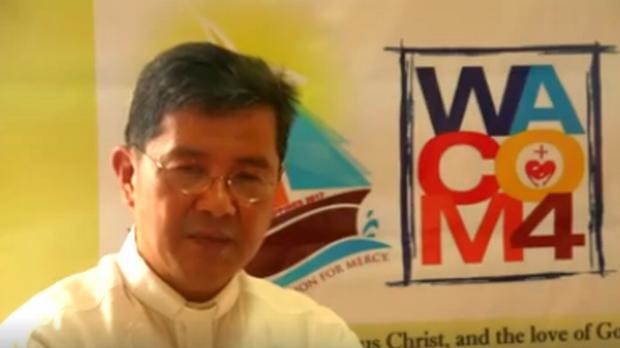The Philippines should allow the thousands of Afghan refugees being assisted by the United States to temporarily stay in the country out of “charity and compassion,” according to a Catholic bishop who champions migrant rights.
Bishop Ruperto Santos, vice chair of the Catholic Bishops’ Conference of the Philippines’ (CBCP) episcopal commission for the pastoral care of migrants and itinerant people, said the Philippines should come to the aid of refugees as a signatory to the United Nations 1951 Refugee Convention.
“But it is more [of our duty] as a Catholic country to extend acts of charity and compassion to assist and welcome them,” said Santos, the outgoing bishop of the Diocese of Balanga (Bataan) and incoming head of the Diocese of Antipolo (Rizal).
Santos also quoted a Gospel verse where Jesus said, “I was a stranger and you welcomed me,” to take up the cudgels for the Afghan refugees fleeing their Taliban-led country.
“We heed God’s call. The Church will cooperate and collaborate with our government to promote, protect and preserve human lives,” he said.
‘Hospitable, helpful’
The bishop cited the Filipinos’ “natural traits” of being “hospitable, helpful and hardworking” in assisting refugees.
Last year, the United States asked the Philippines to temporarily house some 50,000 Afghan refugees while waiting for special immigration visas from the American government.
Philippine Ambassador to Washington Jose Manuel Romualdez supported the US plan but the Department of Foreign Affairs said it was still studying the matter.
The plan came to light last week after Sen. Imee Marcos, chair of the Senate committee on foreign relations and sister of President Marcos, called for an inquiry into the US request.
Vice President and Education Secretary Sara Duterte opposed the US request, citing possible security threats and violations of the country’s sovereignty.
Over the weekend, Presidential Communications Secretary Cheloy Velicaria-Garafil said the President was well aware of the implications of granting Washington’s request.
Not first time
“The request is under evaluation. All concerns will be taken into consideration,” she said.
It would not be the first time the Philippines accepted Afghan refugees, as it already did so, with little fanfare, in 2021, when the government took in an undetermined number of them.
At that time, then Foreign Secretary Teodoro Locsin Jr., now ambassador to the United Kingdom, refused to publicly discuss the matter.
In 2021, former President Rodrigo Duterte told the United Nations General Assembly that the Philippines was ready to accept Rohingya people fleeing the military dictatorship in Myanmar.
Arroyo, Estrada admin
The administration of former President Gloria Macapagal-Arroyo also allowed a number of North Koreans, including former government officials, to transit through the Philippines en route to other countries.
In 2000, the administration of then President Joseph Estrada granted asylum to some 600 East Timorese.
From the 1980s until the 1990s, the country accepted up to 400,000 “boat people” fleeing regime changes in Laos, Cambodia and Vietnam.
It also granted asylum to hundreds of thousands of Chinese from the 1940s up to the 1970s, as well as thousands of Russian refugees from 1949 to 1953 and hundreds of Jewish refugees in the 1930s.
